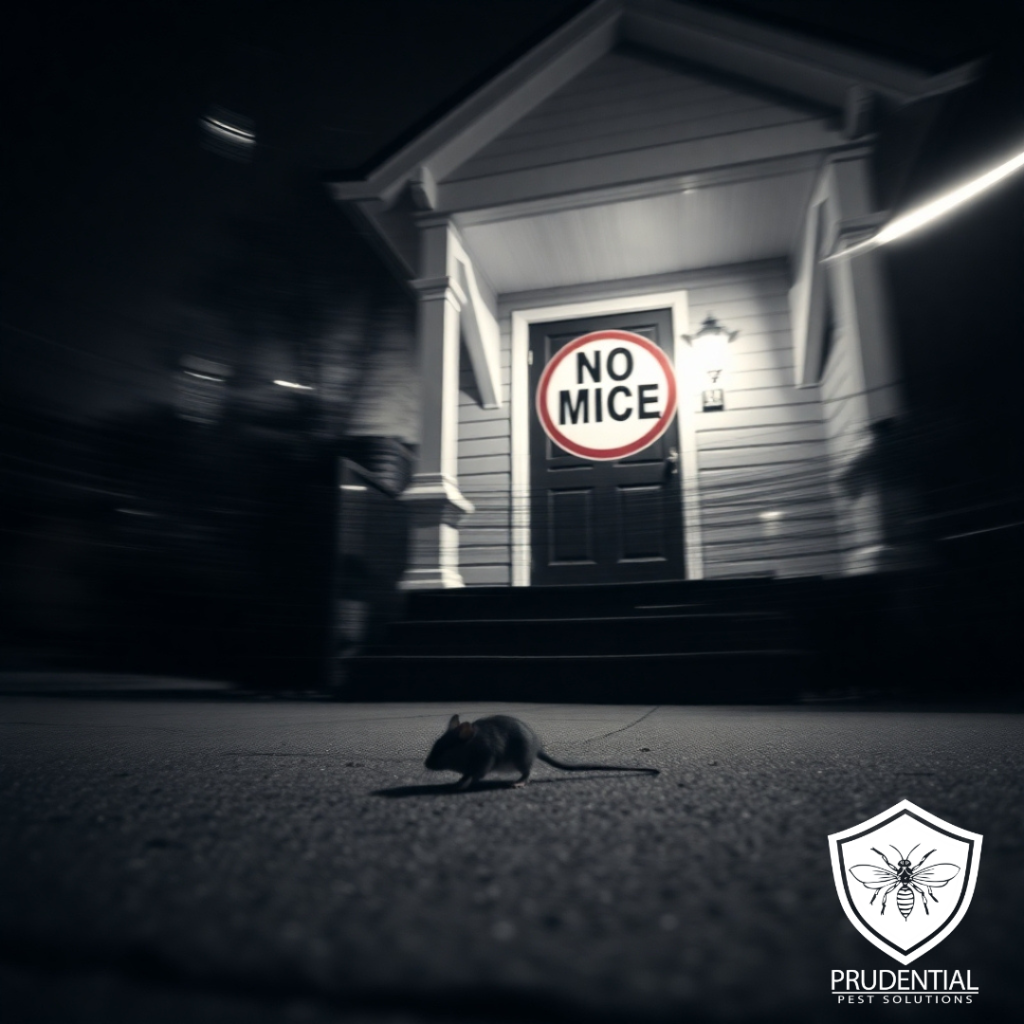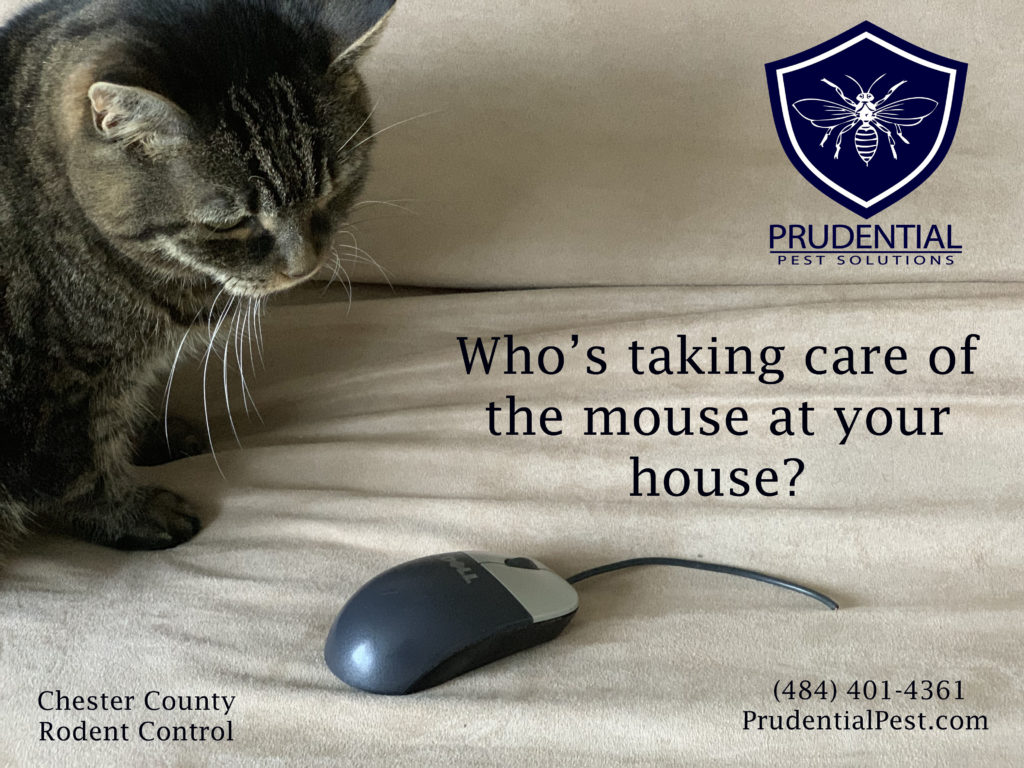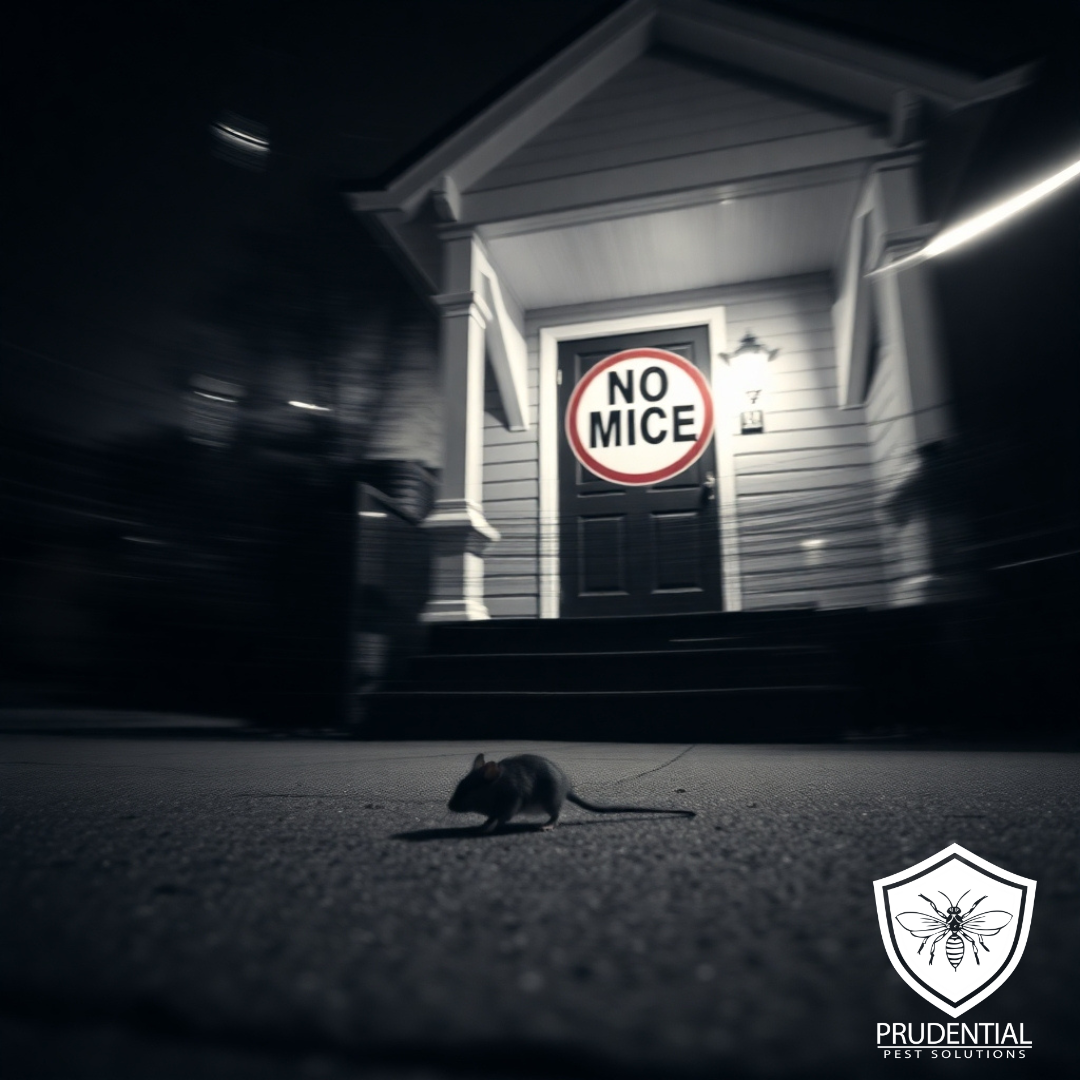Rodent Inspections
The first step in any pest control plan is to properly identify the pest. To determine if you have a rodent issue, a thorough rodent inspection must take place before a treatment can be done. Many times we have people call and report that they are hearing scratching sounds in the walls or ceiling. Immediately the first pest that comes to mind are rodents.
Your inspection should focus on finding evidence of rodent activity. This evidence can be rodent droppings, rodent nesting material, or even traces of rodent urine. In the house we inspected in Chester County, we utilized a UV light to find traces of rodent urine. Remember to inspect the floor as well as up high, as rodents are excellent climbers.
In the case of the Chester County home we inspected, we found rodent droppings along the basement floor. To learn more about some of the common areas that mice enter homes, check out our exterior rodent inspection video here.
Other pests that are mistaken for rodents
Other pests that can sound like mice include bats, squirrels, and even yellow jackets! Bats and squirrels seem pretty straight forward since they could be found in walls or ceilings. Yellow Jackets that have made their nest inside of a structure will often make a scratching-like noise. This sound can resemble a mouse or other mammal in the home. Bat droppings are very similar to rodent droppings in appearance and size. If you see what looks like rodent droppings in large piles in your attic, then you probably have bats.

Rodent Treatments
For the homeowner, there are 3 main avenues for rodent treatments:
- Use Rodent Baits
- Use mouse traps or glue boards
- Seal up the outside of the house
Rodent Baits
Using rodent baits is a very effective means for rodent control. The rodents eat the bait and expire a few days later. Reading and following the directions on the rodent bait is absolutely critical and mandatory. Always apply rodent bait in areas where kids, pets, people, and non-target species do not have access to it. Remember that poisoned mice can also poison predators that feed on mice.
Mechanical Rodent Control
Mechanical rodent control means using rodent snap trap, multiple catch traps, or glue boards. Each of the following technique is different but performs the same function, capture the rodent. Snap traps capture and kill the mouse by using a spring loaded wire. Glue boards are sticky and the rodent gets stuck and cannot get off of the board. Multiple catch traps allow the mouse to enter the trap and it cannot escape. Remember to keep these devices out of reach of children, pets, people, and non-target species.
Rodent Exclusion
Rodent exclusion is ideally done BEFORE a rodent infestation occurs. This generally does not happen because you may not realize there is a rodent entrance until after you have a rodent issue. As with any animal work, do NOT close up the structure until all of the rodents have left. If the house is sealed up, rodents won’t be able to leave and will die in the house leaving a horrible odor.
Rodents can chew through some pretty tough substances. They can easily chew through caulk and sealant. Using steel wool or copper meshing and then sealing will greatly improve your chances of success.

What should you do?
Some folks feel comfortable doing the rodent inspection and treatment themselves. For the Chester County resident that does not want to handle the rodent inspection and treatment themselves, Prudential Pest Solutions is here to help.
We offer rodent inspection and treatment for all of Chester County. If you want to be pest and rodent free year-round, our service plan is perfect for you. We offer discounts to seniors, teachers, veterans, and police/fire/EMS.
Give us a call or send us a message to get rodent free today!

Comments are closed